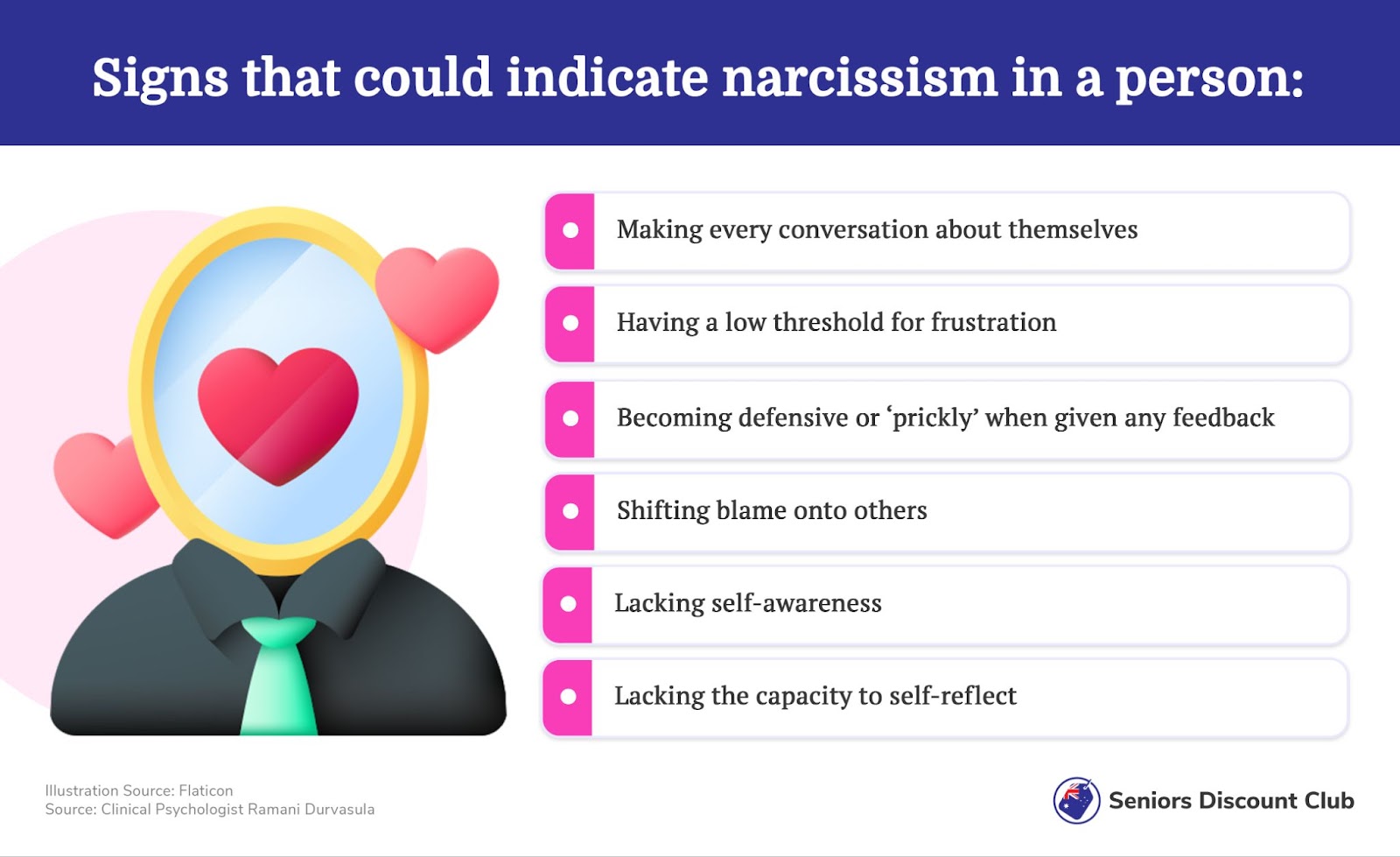Psychologist reveals red flags and life-changing tips in dealing with narcissists
By
VanessaC
- Replies 21
Content warning: This story discusses themes some members may find distressing. Discretion is advised.
Navigating the complex world of human relationships can be challenging.
Moreso when you encounter individuals who exhibit narcissistic tendencies.
Clinical Psychologist Ramani Durvasula recently shared her insights on how to identify and deal with narcissists in your life.
Durvasula, 57, discussed in an interview the early warning signs of narcissism, which is a personality trait characterised by an inflated sense of self-importance, a deep need for excessive attention and admiration, and a lack of empathy for others.
It's a trait that can damage relationships, causing distress and conflict.
She also shared tips on how to effectively cut ties with a narcissist, a process that can be emotionally taxing but ultimately liberating.
Durvasula explained that narcissism is not an inherent trait; instead, it develops as part of a 'social developmental process.'
It exists on a spectrum, with the most extreme cases exhibiting 'rigid' and 'maladaptive' personalities.
'The stuff that might pop out is every conversation is about them. They will bring it back to them, they'll often interrupt you, and they have a very low threshold for frustration,' Durvasula explained.
'As soon as things start going wrong—even if it is a little thing like they're not put to the front of the line in the restaurant or they don't get the table they want—you'll start seeing this kind of anger coming out.'
They would often direct their frustration at people with less power in a given situation, such as service staff.
'You'll also see that they will become really prickly if you give them any feedback.'
She added that narcissists often lack self-awareness and the capacity to self-reflect, which makes it difficult for them to understand how their actions affect others.
Durvasula also outlined several red flags that could indicate someone is a narcissist.

Dealing with Narcissists: Setting Boundaries
According to Durvasula, the key to dealing with narcissists is to set boundaries for yourself rather than for them.
This could involve stepping back, disengaging, or treating your interactions with them like listening to a radio program.
When it comes to severing ties with a narcissist, Durvasula acknowledged that it's not always easy.
'Not everyone can leave, but many people do. When you do leave a narcissistic relationship, not everything is easy.'
Narcissists often use 'love bombing'—showering someone with affection and praise—to draw people back into their orbit.
'Some people will feel naturally drawn back, regretting, wondering, “Did I make a mistake?”, All of that justifying you did in that relationship is coming back.'
To resist this pull, Durvasula suggested writing down all the disrespectful and hurtful things the narcissist has done.
'Do it with a friend, do it with a therapist but write it down,' she advised.
Seeing these actions written down can serve as a powerful reminder of why you chose to cut ties.
Dealing with a narcissist—whether in personal relationships, at work, or in other social contexts—can be emotionally draining and challenging. It's crucial to seek professional help if you're struggling to cope with a narcissistic individual in your life.

Have you encountered a narcissist in your life? How did you handle the situation? Share your experiences and tips with our community in the comments below.
Navigating the complex world of human relationships can be challenging.
Moreso when you encounter individuals who exhibit narcissistic tendencies.
Clinical Psychologist Ramani Durvasula recently shared her insights on how to identify and deal with narcissists in your life.
Durvasula, 57, discussed in an interview the early warning signs of narcissism, which is a personality trait characterised by an inflated sense of self-importance, a deep need for excessive attention and admiration, and a lack of empathy for others.
It's a trait that can damage relationships, causing distress and conflict.
She also shared tips on how to effectively cut ties with a narcissist, a process that can be emotionally taxing but ultimately liberating.
It exists on a spectrum, with the most extreme cases exhibiting 'rigid' and 'maladaptive' personalities.
'The stuff that might pop out is every conversation is about them. They will bring it back to them, they'll often interrupt you, and they have a very low threshold for frustration,' Durvasula explained.
'As soon as things start going wrong—even if it is a little thing like they're not put to the front of the line in the restaurant or they don't get the table they want—you'll start seeing this kind of anger coming out.'
They would often direct their frustration at people with less power in a given situation, such as service staff.
'You'll also see that they will become really prickly if you give them any feedback.'
She added that narcissists often lack self-awareness and the capacity to self-reflect, which makes it difficult for them to understand how their actions affect others.
Durvasula also outlined several red flags that could indicate someone is a narcissist.
Dealing with Narcissists: Setting Boundaries
According to Durvasula, the key to dealing with narcissists is to set boundaries for yourself rather than for them.
This could involve stepping back, disengaging, or treating your interactions with them like listening to a radio program.
When it comes to severing ties with a narcissist, Durvasula acknowledged that it's not always easy.
'Not everyone can leave, but many people do. When you do leave a narcissistic relationship, not everything is easy.'
Narcissists often use 'love bombing'—showering someone with affection and praise—to draw people back into their orbit.
'Some people will feel naturally drawn back, regretting, wondering, “Did I make a mistake?”, All of that justifying you did in that relationship is coming back.'
To resist this pull, Durvasula suggested writing down all the disrespectful and hurtful things the narcissist has done.
'Do it with a friend, do it with a therapist but write it down,' she advised.
Seeing these actions written down can serve as a powerful reminder of why you chose to cut ties.
Dealing with a narcissist—whether in personal relationships, at work, or in other social contexts—can be emotionally draining and challenging. It's crucial to seek professional help if you're struggling to cope with a narcissistic individual in your life.
Key Takeaways
- Clinical Psychologist Ramani Durvasula has shared tips for identifying a narcissist and cutting them out of your life.
- Durvasula identified early red flags such as always making the conversation about them, having a low threshold for frustration and reacting negatively to any form of feedback.
- She explained that narcissistic behaviours develop socially and can be spotted through a lack of empathy and self-awareness.
- Durvasula advised those dealing with a narcissist to set boundaries for themselves and suggested recording instances of disrespectful behaviours as a reminder of why they were cut off.
Have you encountered a narcissist in your life? How did you handle the situation? Share your experiences and tips with our community in the comments below.








